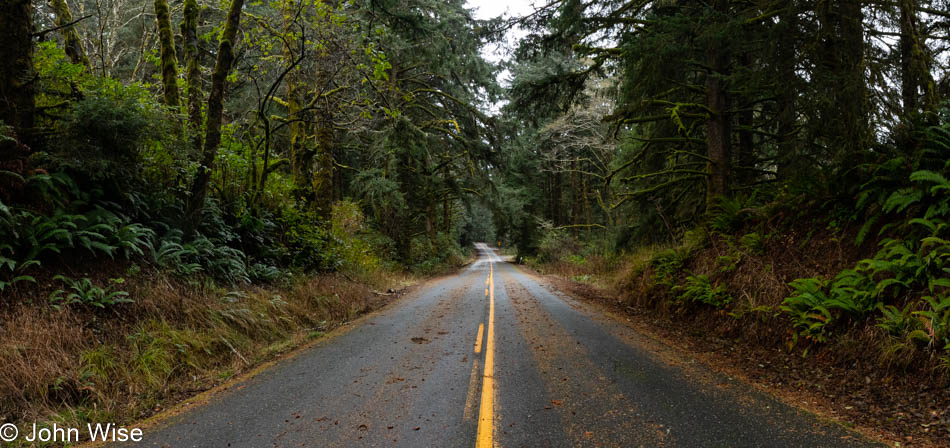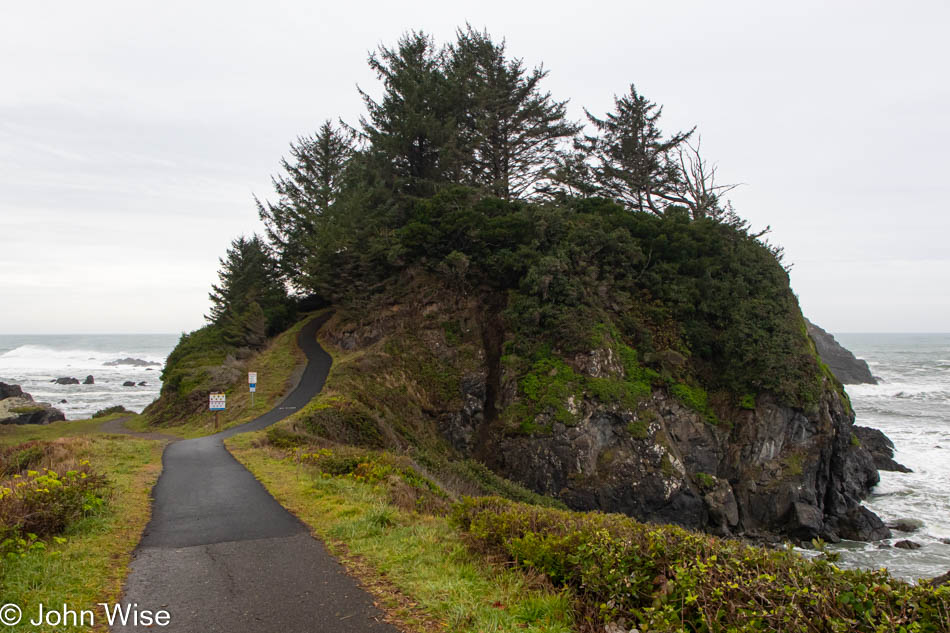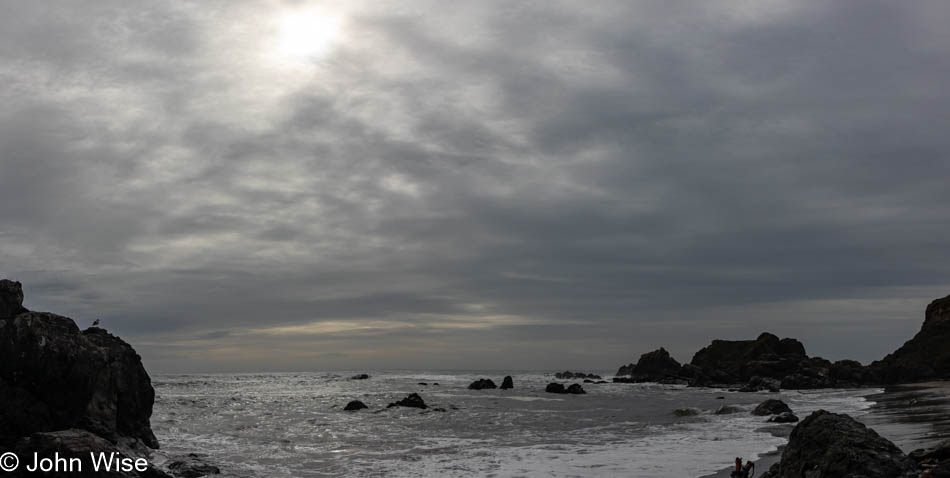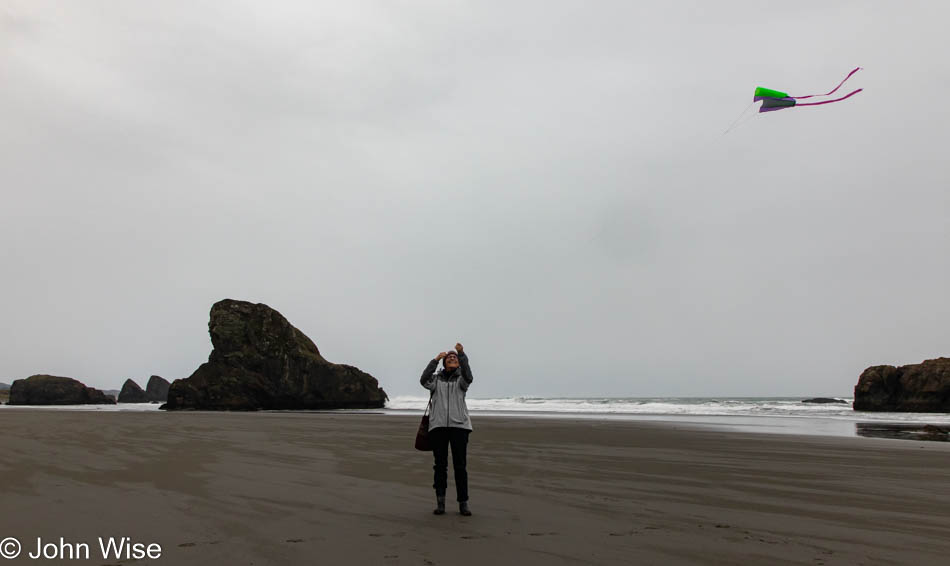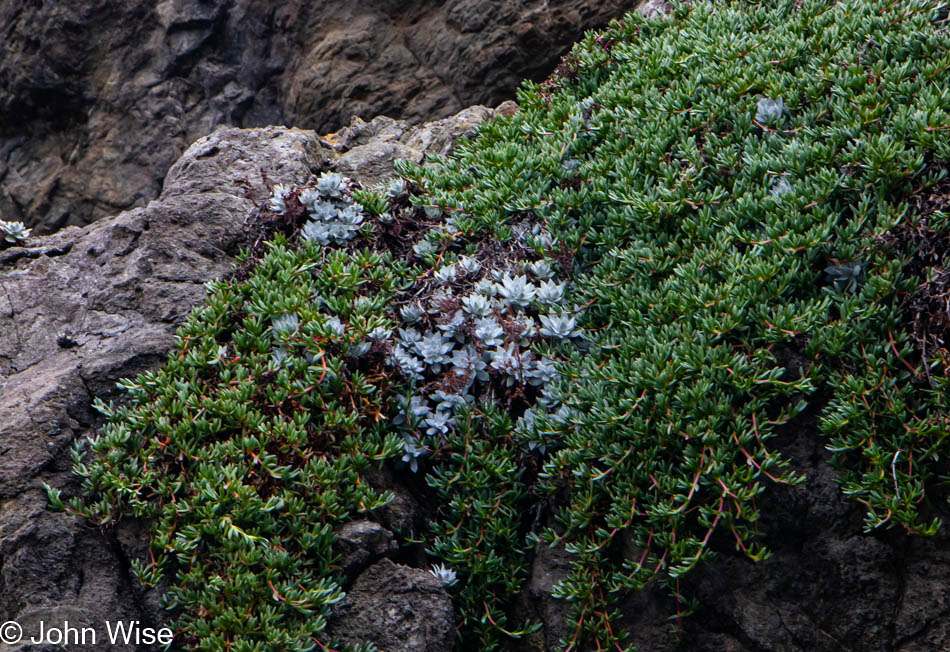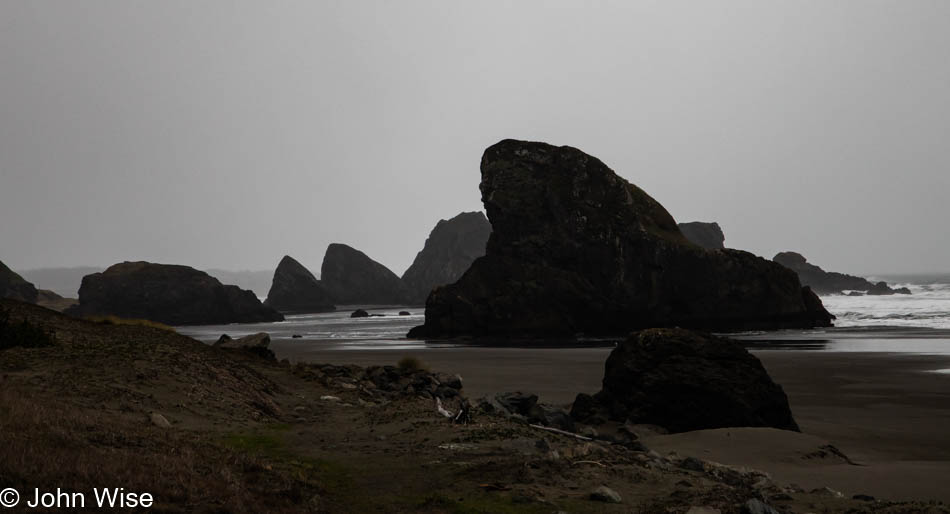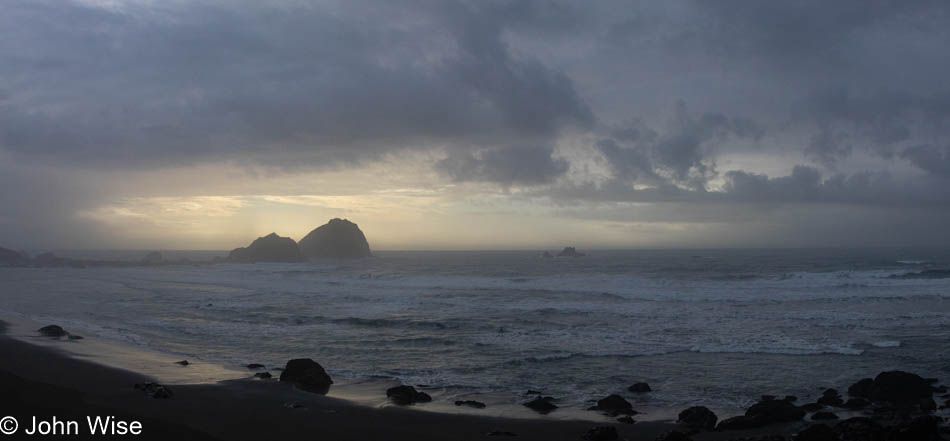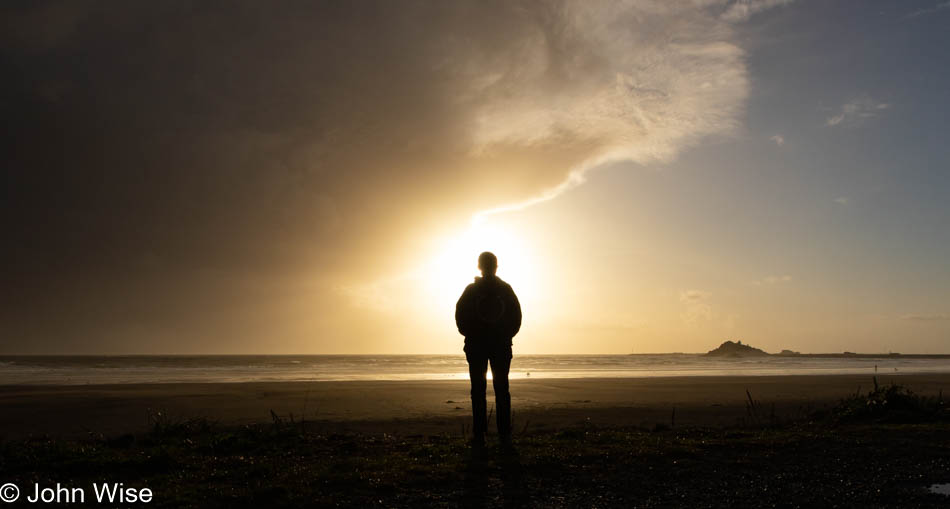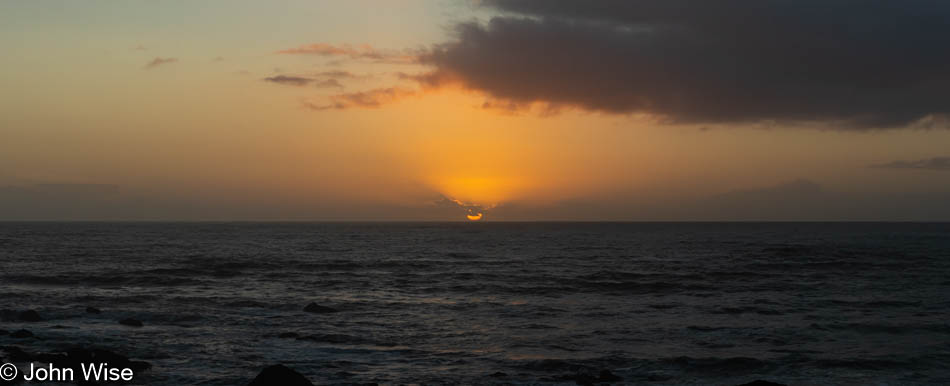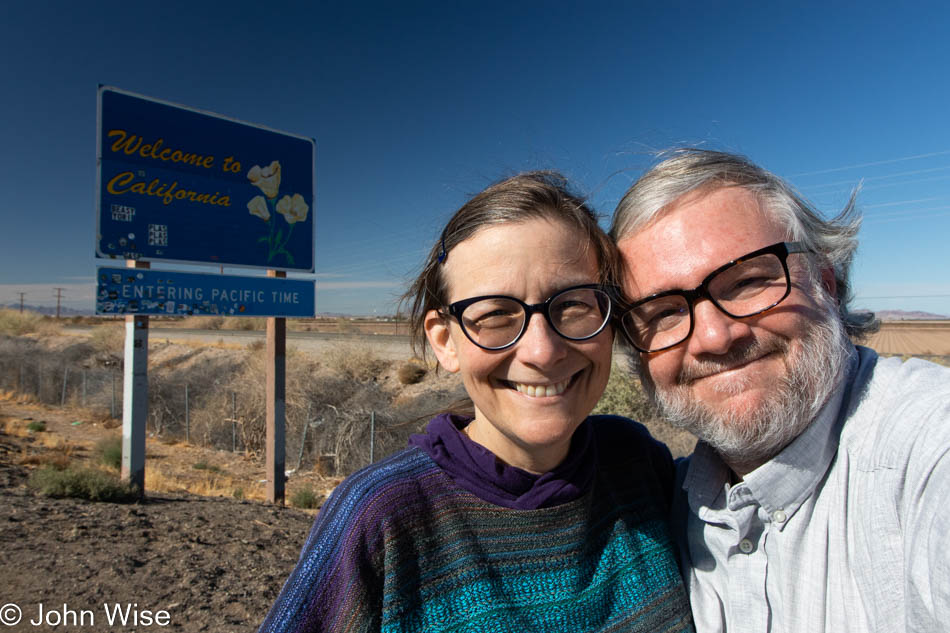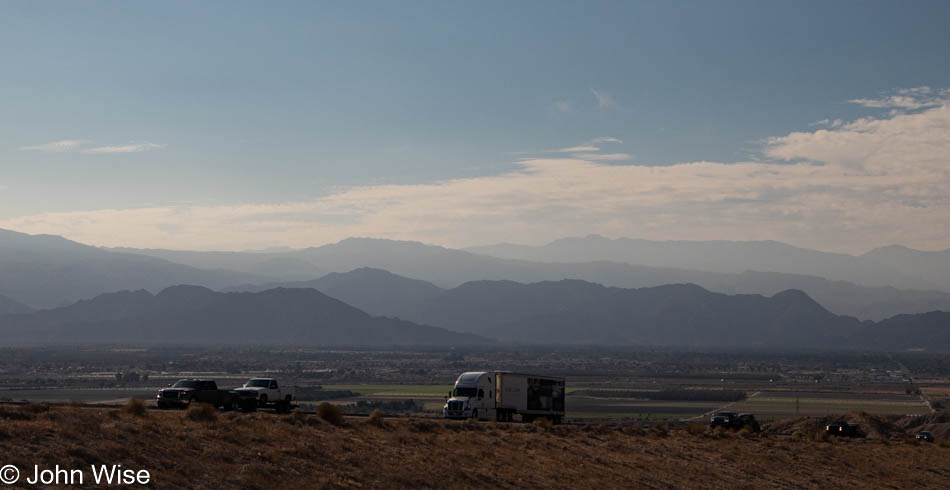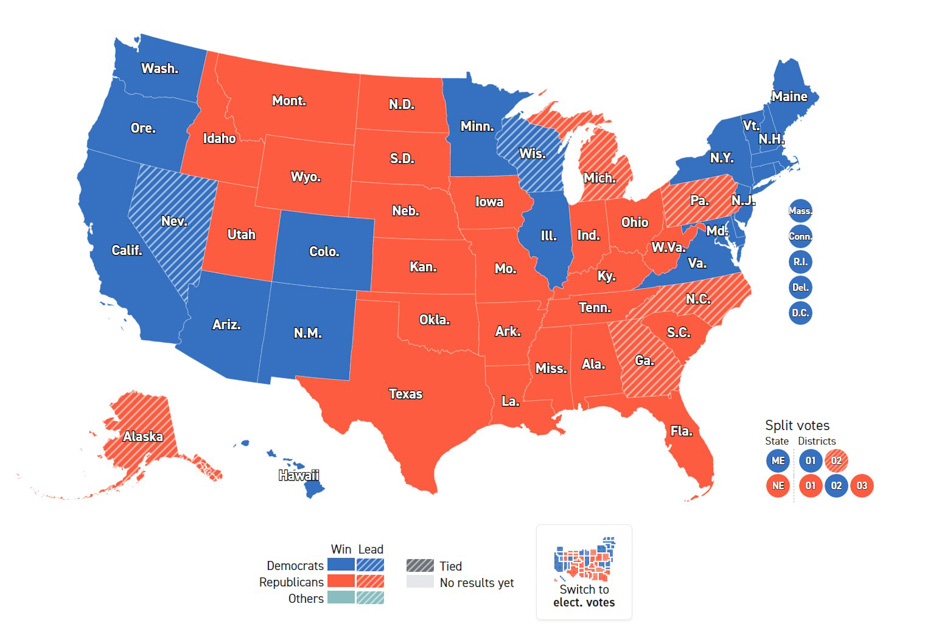
It was raining as we fell into sleep, and by morning, it was still doing so. We had mixed feelings; a part of us wished for it to not relent while the other side that’s aware of our brief time along the coast desires to venture out and find those aesthetic moments that convey a perfection generally expected by those who have been witness to our travels. On the other hand, it was my intention to busy myself in writing of events unrelated specifically to this particular journey but instead to find the words that tell the story of the unknown I would like to explore.
Turning on words, though, is a fickle thing. The beginning of the thread can remain elusive until it’s not, and then the tapestry appears in my mind’s eye and wants to be captured all at once. I suppose that there are dozens of threads in my imagination, probably all I need to make the grandest of quilts, but the chaos of having so many of these random elements strewn chaotically throughout my brain without organization inhibits my ability to find order. Like creating a song, I should probably focus on uncovering a melody or a rhythm and then discover what compliments the emergent structure.

Instead, I feel drawn into this sabbatical from routine desert life during a pandemic and desire nothing more than sitting here in the forest enjoying the constant drizzle and our removal from the troubles of the zeitgeist. So, I write about whatever comes to mind and consider that I’m in the process of winding down to a point where I can fall into flow.
How does one find symbiosis with the mushroom? Not the apparent lack of thought but the patience and wisdom to know that one doesn’t rush off to change their station in life by desire alone. We must first accumulate a mass of presence, and for us humans, that is found in experience and the thoughts discovered in reading. Born with a blank slate, we know nothing about what we like, how we will ultimately communicate, or even how we’ll get from Point A to Point B once our leg muscles are able to propel us. Beyond that, we also know nothing about the structure of stories, the melodies of tunes, or the cascade of light we find patterns within. Our mental machine must be tuned and then constantly refined to operate more efficiently with increasing performance or should we accept that the one-horsepower stream engine sputtering inside our head since we were but children is sufficient?

Should we allow the fruit of our efforts to languish in the tree, it will slowly shrivel, fall to the ground, and rot, becoming fodder for that which will come along and feast on the waste. In this sense, nature is merciless and is quick to recycle that which is not producing growth. Do we really believe we can escape this law of nature? The trick facing humanity is to know how to encourage that which is blossoming to come into their own and seize their moment to become whole. The current evidence suggests that we are failing, but I’m not out here in the woods to follow my own laments; on the contrary, I want to discover what I don’t yet know.
The rain comes down with renewed vigor while the gray clouds seem to close in on Earth. When the rain picks up, the birds that had been about when things were at but a drizzle return to quiet and remain out of view until one drops from a giant, perfectly still tree, bouncing from rock to ground before zipping back into the branches above. Meanwhile, we whittle away the time locked into the conveniences requiring electricity and communication. Caroline is talking with her mother in Germany via Skype while simultaneously knitting a pair of socks for me and occasionally referencing various stories on the internet as the two explore topics of interest. I sit in the kitchen at a small table by a window, writing this here that you are reading, and from time to time, I head outside to snap a photo of ferns, mushrooms, apples, and the house we are staying in.
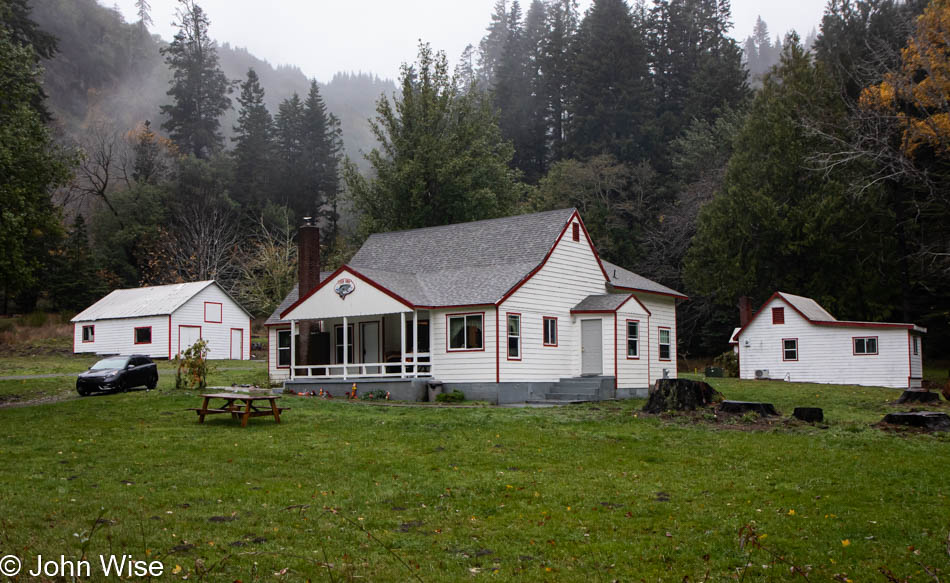
But the house we are staying in cannot be stayed in all day. Well, it could, but that would deny us the opportunity to get a modicum of exercise which is highly important on vacation as the inclination might be to nest. Nah, that’s not us, so with a heavy amount of ambivalence, one side of me saying stay and write, the other side reminds me that this isn’t just about me, and so it wins with the argument that we need to do things that involve us.

Words at the Sea:
We’ve been here before, but that doesn’t matter. Maybe we’ll be back again, but that, too, doesn’t matter. What matters is that we are here now, seeing this under entirely new circumstances where we are different, the ocean is different, and the landscape below is different. It’s all very subtle, and no one could put their finger on precisely what’s different, but we should all understand that it’s impossible to be here from one day to the next and have the reasonable expectation that the universe of it all has not been altered in some nuanced little way. It is on us to tease those changes out of the fabric of what lies before us or from within. Is my mind different? Do I perceive colors differently? Have the trees changed height, or did some of the rocks fall into the sea? How does one measure the variation between memories separated by time?

On the way to Brookings Harbor, we stopped for a walk out to Cape Ferrelo, but the photos from up on the hillside were too meh to share. Sometimes, the overcast or rainy weather can work in our favor, and at other times, I don’t enjoy the results. Maybe six months or six years from now, I’ll be wondering why I didn’t include a couple should I then be convinced they were better than I remember, but that will be then, and this is now, so no photos of the place where I did take this amazing photo of Caroline back in 2006. By the way, we are traveling with that exact umbrella on this trip, too. If the weather is encouraging tomorrow, maybe we’ll reenact the image.
So what of the boats in the harbor, you ask? Really nothing other than there’s something about tall masts lined up that I find intriguing. I’ve never given it much thought though, why masts should hold this kind of appeal, but they do.
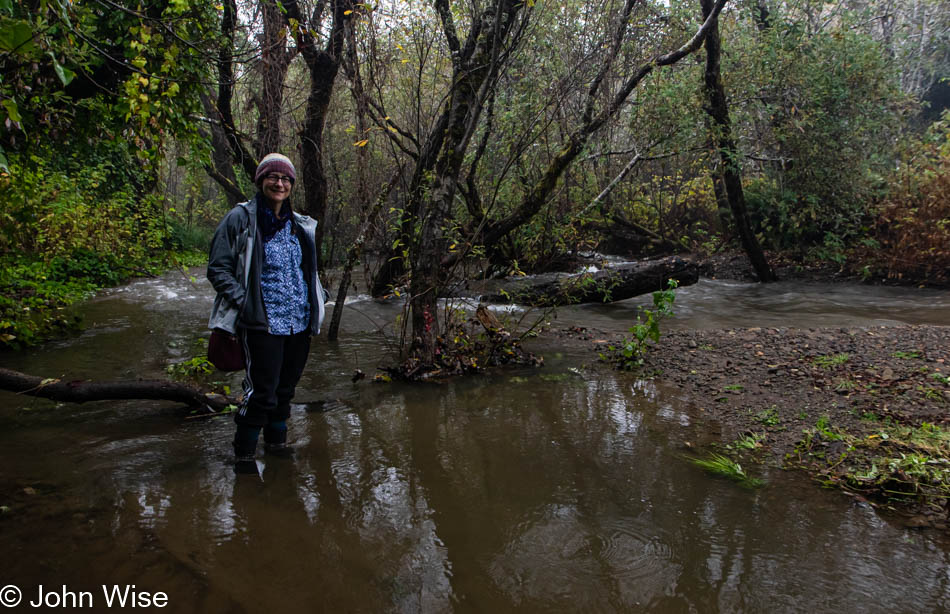
This is the “modified for old people” version of the wife standing in the water on vacation photos we often post. Normally Caroline would have doffed the shoes and socks, sucked up some gumption, and plodded into the bone-chilling water, but with her new rubber boots, which were just bought yesterday needing some testing out for micro-holes, she walked into a flooding stream and emerged with dry feet. Don’t worry, though, as I’m as certain as can be that no less than once, she’ll be barefoot in the water because that’s what she does.

This water and the water behind it, not the stuff in the ocean, is what Caroline was just standing in. We are at Lone Ranch Beach, which is the neighbor of Cape Ferrelo. The rain has stopped, which has encouraged us to take one more walk this afternoon before the sun sets. While down here we both question if we’d ever been here before as nothing looks familiar. It could be that it’s low tide, and with all the exposed rocks, things just appear different. Or maybe it really is our first visit.
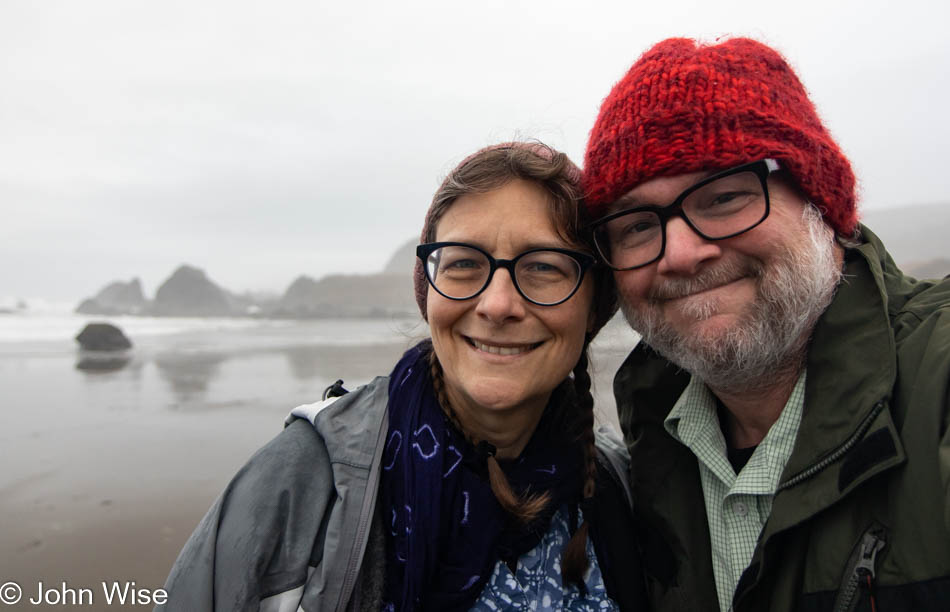
To mark the occasion, we pose for a selfie, and while we are properly lit, I cringe at how blown out the background is. Just look at the photo above this one to see how it’s supposed to look, and you, too, will have your skin crawl at how poorly the photographer of this selfie is at knowing how to operate his camera. I’d bet my smartphone would have done better than this archaic DSLR that only recently replaced the old guy’s Brownie Instamatic.

The sun has set, though we cannot see it, nor have we seen it all day. Fog has been pulsing back and forth off the ocean and rolling out over the surrounding hillsides as we spent a couple of hours out here on this short stretch of beach. We were mesmerized by the brutal crashing waves that appeared to tower well over our heads before breaking at a good distance and quickly being consumed by the water rushing back to the sea that had made it up the beach. The waves that did race up the sand felt sneaky, which had us on alert as we made our way to exposed rocks that obviously were part of a seafloor exposed by low tide. What makes this obvious to us are the mussels, chitons, barnacles, and sea stars. Oh, did I say sea stars when previously I kept calling them starfish? Today, we learned from a nearby display that they are now called sea stars because starfish don’t have gills, scales, or fins, though they do live underwater…where they kill urchins, mussels, and anemones.

